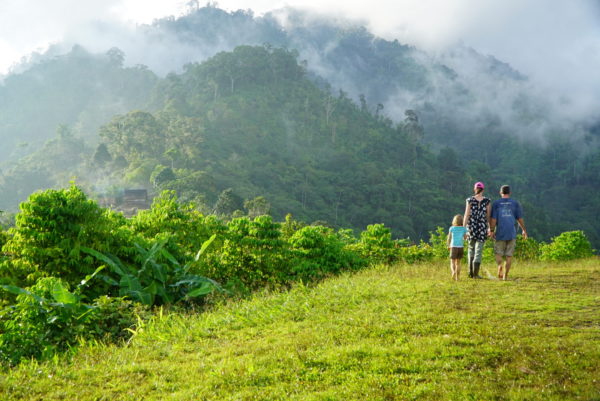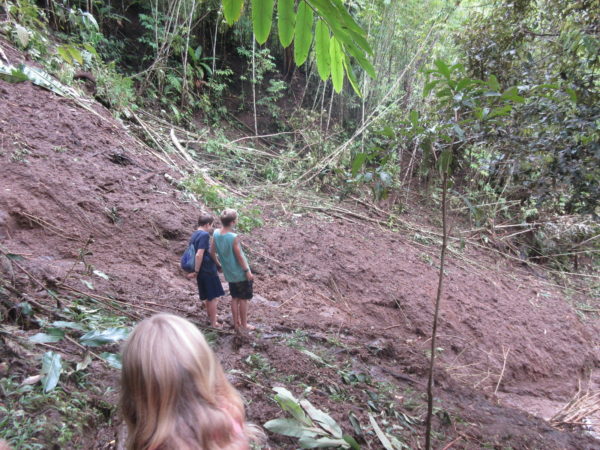
In case you were wondering, a landslide sounds like thunder; it starts out as a distant rumble that builds and builds and then slowly fades away. The difference is that a landslide leaves behind more than an echo. Up here in the mountains, water flows through almost every valley, and there are a lot of valleys. On top of that, people cut and burn the land for their gardens on the slopes, removing huge networks of plant root structure that would otherwise help to anchor the topsoil.
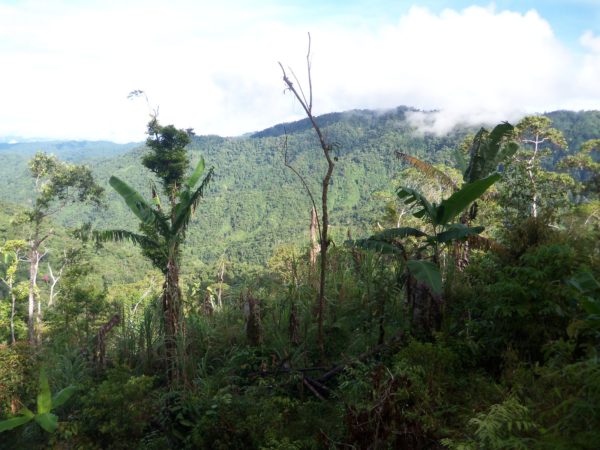
Why plant on the slopes? There is, quite literally, nowhere else to plant! Our small corner of the Adelbert Mountains is extremely rugged. Flat land is not a common phenomenon and is mostly found on the tops of the ridges. It makes a good place to build your village, but a bad place to plant your garden. Because of the frequent rains during most of the year, the soil on the tops of the mountains is constantly being washed down the sides, leaving nice, solid clay on the ridges which does great things for your house posts, but not a lot for your crops. Also, garden land is passed down from father to son, so you plant your food where your father planted his food. If it happens to be on a 60% grade, oh well.
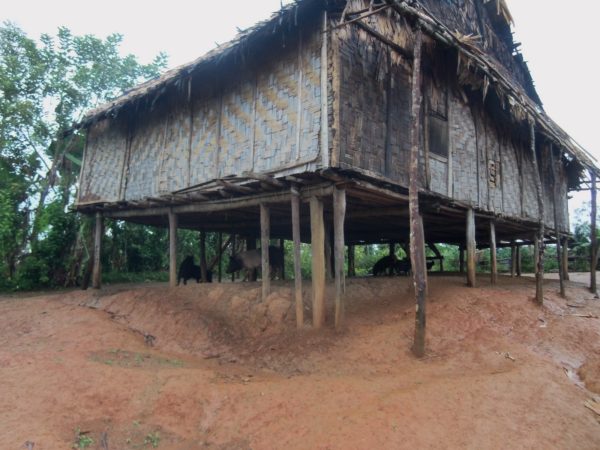
All of these factors compound into at least a few landslides each winter, but this year–two Sundays ago, to be exact–there were more than a few. We can see dozens of them from our ridge, and if we walk to the ridge across from us, we can see a dozen more. It’s hard to get a good picture of a landslide because from far away they don’t look like much, and from up close they are too massive to fit in the frame. They range in size from the sidewalk on your street to a couple of city blocks. They can uproot mature trees and carry away boulders. They can destroy houses and bury people alive. One almost carried away our coworker a couple of years ago!

Luckily, nothing that horrible happened on Sunday. No lives were lost, only a few pots and spoons, an axe and machete here and there, and some clothing. And food. Lots and lots of food. Some of the gardens were just beginning to grow and are a total loss. Some of the gardens were just getting ripe, and people have been able to salvage some of the food that was swept away. In fact, with no way to store the excess food that is being dug out of the mud all at once, they are sharing it with us! (NOTE: The first time someone brought me food after the landslides I refused to accept it, and I got dirty looks and a lecture on being ungrateful. Just so you know.)

So while many appear to be “feasting” now, the famine will probably come later. They hadn’t planned on harvesting those gardens right now, and certainly not all at once. And many of the gardens they planned on eating from during the summer and fall months are now gone. We have been discussing among ourselves on the team and with the community how we can support them, but the conversations have been unsatisfyingly open-ended. What is the best way to help people who really need it? What is best for the church, now and in the future? How can I look my friends in the eye and tell them to trust God for their food while I unpack all my groceries that were just delivered by my private helicopter??
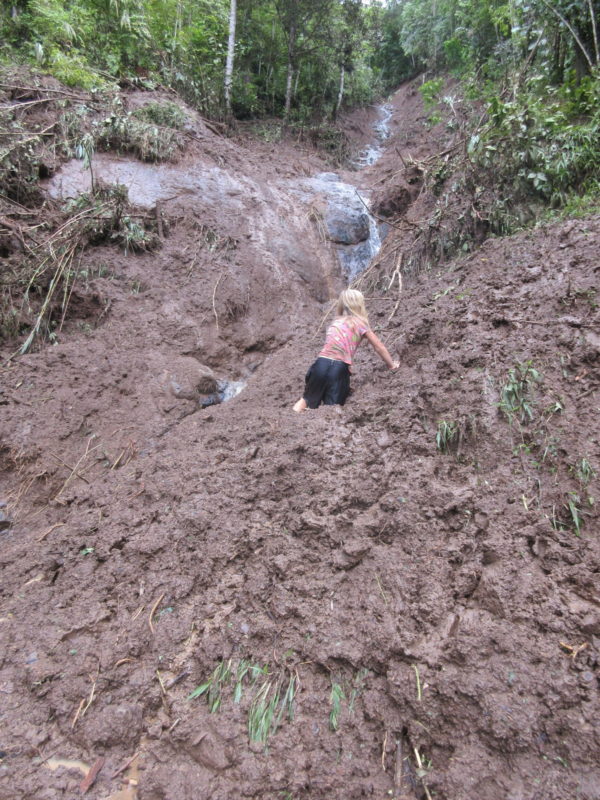
And yet, this calamity is satisfyingly different from those in the past. Before they knew God, even minor catastrophes would bring large groups of people together to decide whose sin was responsible and how they could atone for it. Before they knew God, they would be suspicious of everyone who ever looked at them cross-wise and accuse them of ruining their garden/pig/wife/favorite betel nut tree. Before they knew God, there was only confusion, fear, and hopelessness.
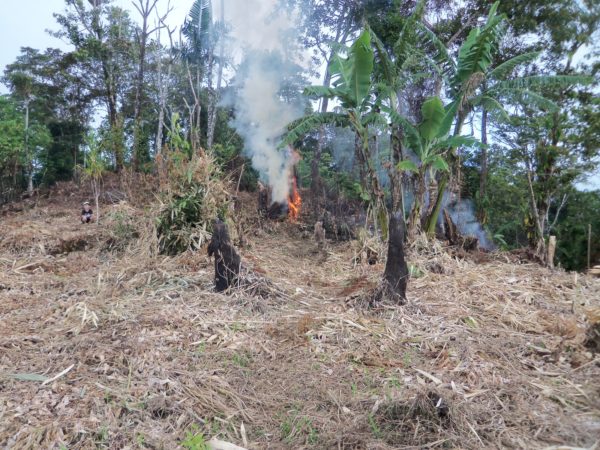
Now the story is different. Nagal told me that, since her husband was away and there was no one else to check on their garden, she thought about the power and love of God and overcame her fear and just went out and did it. Bawan told me how something kept her awake on the night of the storm, and that because she was watchful she was able to save all of her family and most of her belongings out of the very teeth of the raging floodwaters. And when they got to higher ground they praised God that they were safe even though she had just watched part of her garden get washed away! Sikuak told me that her “buka” garden (their absolute favorite food) is pretty much gone, but (and this is a loose translation), “Whatevs. God is good.”
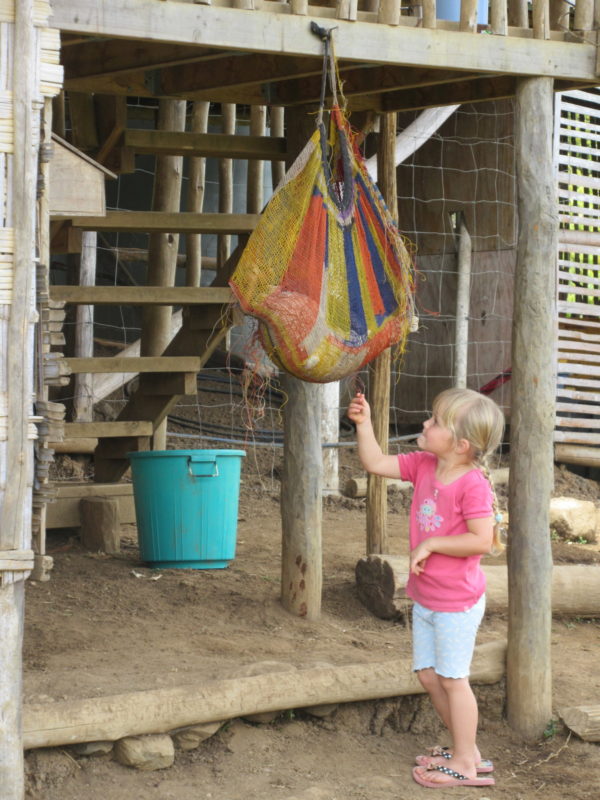
It is definitely not a small thing to have so many gardens wiped out, but we are praising God that people are now equipped to stand on His promises and encourage each other through a trial. They still have questions–especially those whose faith is on shakey ground–so please pray for them as they experience yet again that life is not all flowers and sunshine after you say “Jesus is true.” Like we sang in church on Sunday:
Kopəl əo kuago bə ulili dətə kotop oyə
“This earth that we live on is not meant to be like this forever.” Pray for the Pal people as they struggle with the harsh reality of a cursed earth even as they wait with hope for the return of Jesus. Pray that unbelievers would see the peace and gratitude that the Holy Spirit gives in the midst of turmoil and turn their hearts toward God. Pray for the rain to stop! Pray that people who have enough food to share with others will do so to the glory of God. And please pray for us to represent Jesus well here in our rugged mountains.
